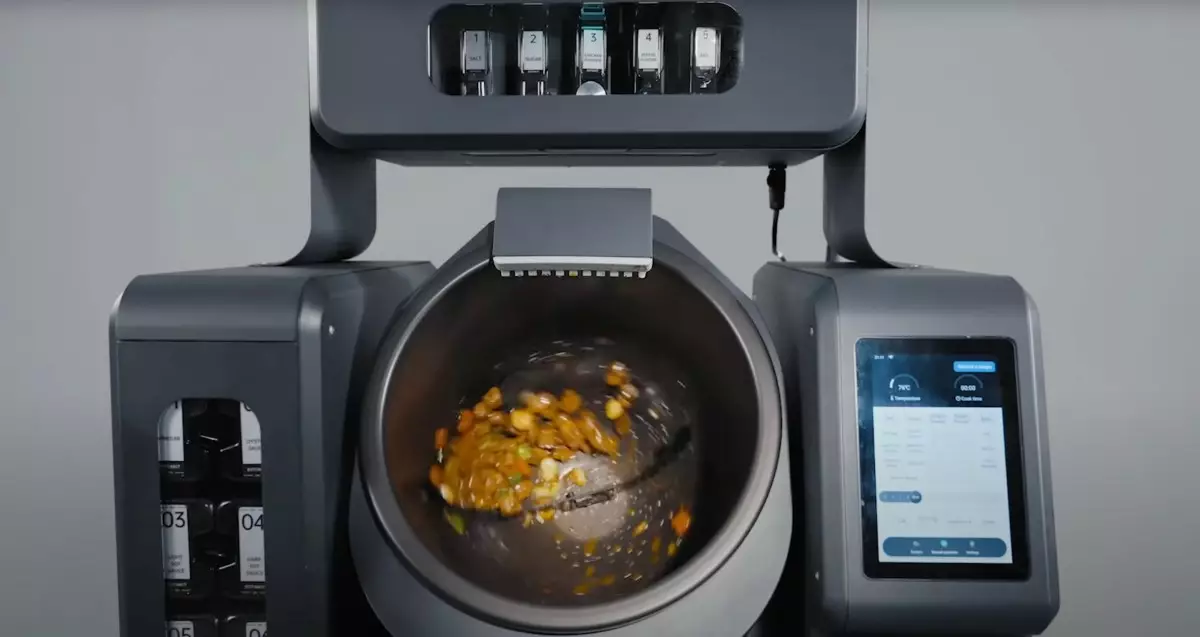As the restaurant industry emerges from the challenges posed by the COVID-19 pandemic, it finds itself contending with a significant staffing crisis. Dining establishments across the globe are struggling to find enough reliable personnel to meet rising consumer demands. In response, a wave of innovative startups is offering automation solutions designed to alleviate the burden on human labor while ensuring operational efficiency.
Among the frontrunners in this technological revolution are companies producing robotic systems for commercial kitchens. Notable innovations, like Miso’s robotic arm, have captured public attention with their ability to perform tasks such as flipping burgers. However, a different approach has been taken by Botinkit with its product, the Omni. Unlike its flashier counterparts, the Omni presents as a standard kitchen appliance reminiscent of a self-service kiosk, complete with a touchscreen interface. This design makes it less intimidating for staff, emphasizing a seamless integration of technology into familiar kitchen environments.
The Omni system is not just a gimmick; it represents a fundamental shift in how food can be prepared efficiently. Capable of handling a variety of cooking techniques such as stir-frying, stewing, and more, the Omni aims to significantly reduce the workforce needed in kitchens. According to the Shenzhen-based startup, utilizing this system can cut human labor demands by half. CEO Shirley Chen emphasizes the importance of transforming traditional kitchen tasks to ensure consistency and efficiency—qualities often compromised by human cooks whose performance can vary based on subjective judgment and individual skill levels.
Chen’s diverse background, including experience in accounting at KPMG and as a restaurant owner, uniquely positions her to understand the intricate dynamics within the food service sector. Since its inception in 2021, Botinkit has focused on tackling some of the kitchen’s most labor-intensive tasks to streamline operations. The initial investment round has proven fruitful, with the company announcing a Series A funding success of $21 million, an impressive feat that showcases investors’ confidence in the automation trend within restaurants.
With Asia as its primary market, Botinkit has begun making strides into Europe and the United States, indicating a broader acceptance of automation solutions in food service. The increased investment will enhance their ability to expand internationally and refine their technology. As the battle against labor shortages rages on, restaurants may soon see a paradigm shift, embracing automated technology to ensure sustainability and profitability—signaling a new era of dining where robotics and human ingenuity coexist harmoniously.
In a world where adapting to change is crucial for survival, the restaurant industry stands at a pivotal juncture. The rise of automation represents not only a solution to labor shortages but also a reflection of evolving consumer expectations and operational challenges. As companies like Botinkit lead the charge, the future of dining might be more automated than ever before—prompting chefs and restaurant owners to rethink the traditional paradigms of cuisine and service.

